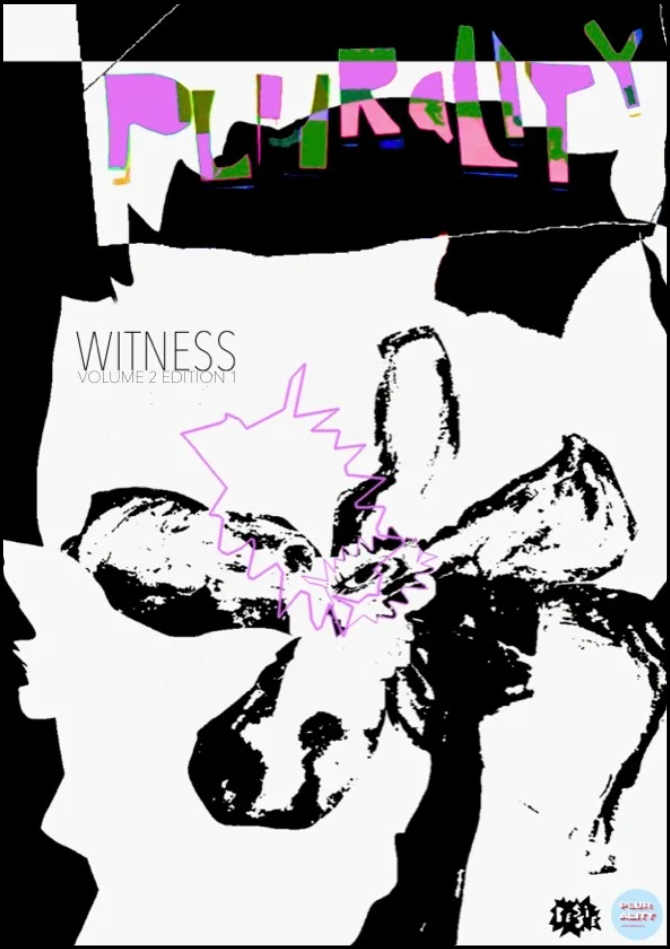Witnessing Erasure: Diasporic Memory and the Algerian Struggle Against French National Amnesia
DOI:
https://doi.org/10.2218/plurality.10624Abstract
The concept of diaspora, often entangled within the nation-state's rigid boundaries, presents a crucial yet often overlooked lens to denaturalise ossified narratives associated with the linear progression towards the centralised ‘neutral’ state. In crossing borders and boundaries, the Algerian diaspora in France occupies a liminal space that continuously reimagines, challenges and deterritorialises notions of ethnicity, citizenship and belonging. Pierre Nora’s seminal work ‘Lieux de Mémoire’ provides an important theoretical framework for understanding the relationship between locations, events and symbols as central to the collective memory of the nation. It is notable that he, being a member of the French settler community in Algeria, was deeply entwined with the history of French colonial rule. However, Nora’s works often anchor themselves in a collective memory that has sanitised the traces of empire as if deemed unworthy of remembrance or simply considered marginal. Whilst Nora’s works are central to the field of memory studies, his perspective risks perpetuating a vision of France that obscures the foundational violence of its colonial enterprise and the enduring liminality of its post-colonial subjects. Although post-colonial perspectives have gained traction within and amongst French academic circles, they often challenge key aspects of French national character. The relegation, erasure and essentialization of ‘non-European’ history are not merely semantic, but emblematic of institutionalised reductionism and dismissal. Ideas of progress and modernity are presented as inherent and universalistic. I propose this constitutes a dual process of historical erasure, firstly the erasure and essentialization of ‘non-European’ history and secondly the erasure of the memory of the atrocities committed during French colonial rule. This dynamic ultimately affirms the positional superiority of France through disseminating a worldview that privileges Western epistemologies. This dual process of erasure is particularly pronounced when understanding the experiences of the Algerian diaspora whose presence actively challenges the memories and imaginaries of French colonial rule and modern claim of neutrality. The Algerian diaspora dispels the myth of a static, territorially bound nation-state by merely existing within French borders. The post-memories and mythification of Algeria in the consciousness of second and third-generation Algerians challenge the assimilationist policies of the French state whilst unsettling what ‘home’ means for these communities. Thus, diasporic memories are a form of resistance, recasting the past in a light that illuminates the pluralistic and often contentious nature of identity and belonging.
References
Achille, Etienne, Charles Forsdick, and Lydie Moudileno. Postcolonial Realms of Memory: Sites and Symbols in Modern France. JSTOR. Liverpool University Press, 2020.
Agnew, Vijay. “ Diaspora and Memory.” In Diaspora, Memory, and Identity: A Search for Home. University of Toronto Press, 2005.
Anderson, Benedict. Imagined Communities: Reflections on the Origin and Spread of Nationalism. London: Verso, 1983.
Barclay, Fiona. France’s Colonial Legacies: Memory, Identity and Narrative. JSTOR. 1st ed. University of Wales Press, 2013.
Baring, Edward. “Liberalism and the Algerian War: The Case of Jacques Derrida.” Critical Inquiry 36, no. 2 (2010).
Delcroix, Catherine. “Two Generations of Muslim Women in France : Creative Parenting, Identity and Recognition.” Identity and Recognition. Oral History Review, 2009.
Farris, Sara R. In the Name of Women’s Rights : The Rise of Femonationalism. Durham: Duke University Press, 2017.
Francois, Myriam. “France in Focus: The Legacy of Colonialism in France | the Big Picture.” Www.youtube.com, 2023. https://www.youtube.com/watch?v=Dc0abqW6zkc&t=1242s.
Françoise Vergès. A Decolonial Feminism. London Pluto Press, 2021.
Hoel, Nina, and Sa’diyya Shaikh. “Veiling, Secularism and Islamism: Gender Constructions in France and Iran.” Journal for the Study of Religion 20, no. 1 (2007).
Lefebvre, Henri. Everyday Life in the Modern World. Routledge, 1968.
Macmaster, Neil. Burning the Veil the Algerian War and the “Emancipation” of Muslim Women, 1954–62. Manchester University Press, 2020.
Maerker, Anna Katharina, Simon Sleight, and Adam Sutcliffe. History, Memory and Public Life : The Past in the Present. London: Routledge, Taylor and Francis Group, 2018.
Maris, Cees. Laïcité in the Low Countries? On Headscarves in a Neutral State . NYU School of Law, 2008.
Nader, Laura. Contrarian Anthropology: The Unwritten Rules of Academia. JSTOR. 1st ed. Berghahn Books, 2018.
Nahid Afrose Kabir. Young British Muslims. Edinburgh University Press, 2012.
Nelson, Elizabeth. “Politics of Belonging: Identity, Integration, and Spatial Practices of Algerian Immigrants and Their Descendants in Paris, France ,” 2021.
Nora, Pierre. “Between Memory and History: Les Lieux de Mémoire.” Representations 26 (1989).
Redclift, Victoria . “The Demobilization of Diaspora: History, Memory and ‘Latent Identity.’” Global Networks 17, no. 4 (2016).
Renan, Ernest. What Is a Nation? And Other Political Writings. New York: Columbia University Press, 1882.
Richard, F. “Recharting Atlantic Encounters. Object Trajectories and Histories of Value in the Siin (Senegal) and Senegambia.” Archaeological Dialogues 17, no. 1 (2010).
Rogers Brubaker. Ethnicity without Groups. Cambridge (Mass.) ; London: Harvard University Press, 2006.
Saïdani, Asma. “Ethnic, Religious and National Identities among Second and Third-Generation Algerians in a Post-Colonial France,” 2023.
Savage, Kirk. Monument Wars : Washington, D.C., the National Mall, and the Transformation of the Memorial Landscape. Berkeley, Calif: University of California Press, 2009.
Silverman, Max . “The French Republic Unveiled.” Ethnic and Racial Studies 30, no. 4 (2007).
Downloads
Published
Issue
Section
License
Copyright (c) 2025 Melissa Kocacinar

This work is licensed under a Creative Commons Attribution-NonCommercial-ShareAlike 4.0 International License.





